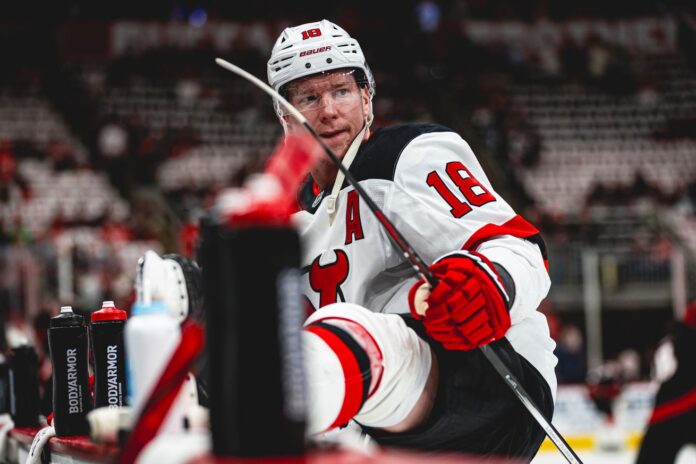The New Jersey Devils, after a season that offered glimpses of their potential but ultimately fell short of true contention, find themselves at a critical juncture. While the 2024-25 campaign saw individual brilliance from stars like Jack Hughes, Nico Hischier, and Jesper Bratt, and welcome improvements in goaltending, the team’s depth issues and inconsistencies ultimately left fans wanting more. General Manager Tom Fitzgerald faces a challenging, yet exciting, offseason as he aims to elevate this promising roster to the next level. For a comprehensive look at all things Devils, including team news, player insights, and more, be sure to explore https://explorenewjersey.org/new-jersey-devils/.
The Goaltending Conundrum and Beyond
A major focal point for the Devils this offseason is the situation in net. While Jacob Markstrom delivered a stellar performance, solidifying the starting role, his contract is entering its final year. The question of whether to extend him long-term or navigate a potential free agency looms large. Similarly, backup Jake Allen, despite expressing a desire to remain in New Jersey, is an unrestricted free agent. With a limited cap space and key restricted free agents to sign, particularly rising star defenseman Luke Hughes, Fitzgerald has tough decisions to make. The focus appears to be on locking up Markstrom and potentially trusting in young netminder Nico Daws for the backup role, rather than entering a bidding war for Allen.
Navigating a Tight Cap: The Trade Market is Key
The Devils’ financial flexibility is a significant factor in their offseason strategy. With just over $11.2 million in projected cap space, and Luke Hughes’ significant new deal on the horizon, splashing big cash in free agency isn’t a viable option. Even if they had ample funds, the current market for unrestricted free agents is often inflated, making trades a more strategic avenue for acquiring impactful talent. This means Fitzgerald will likely need to get creative, shedding “dead weight” contracts to free up space and then targeting players who can provide significant value at a manageable price. Recent moves, like the Juho Lammikko signing, signal a shift towards value-oriented additions, emphasizing that every dollar counts.
Identifying Roster Gaps: The Quest for a 3C
While the Devils boast an impressive top-six forward group, the lack of a reliable third-line center proved to be a significant weakness last season. The ability to roll three strong lines is a hallmark of championship contenders, and the Devils learned this lesson firsthand. Teams that go deep in the playoffs consistently demonstrate depth down the middle, a quality the Devils desperately need to cultivate. Therefore, addressing the 3C position should be a top priority for Fitzgerald. This isn’t just about adding offense; it’s about providing defensive responsibility, relieving pressure on the top two lines, and creating more consistent offensive zone time.
The free agency market for quality centers is often thin, making the trade market a more promising hunting ground. Hypothetical scenarios suggest targeting players like Phillip Danault, a strong defensive center with offensive upside, or exploring options from teams facing cap crunches. The goal is to find players who can contribute meaningfully without commanding an exorbitant salary or long-term commitment, aligning with the Devils’ need for short-term solutions that maintain future flexibility.
The Balancing Act: Short-Term Gains for Long-Term Success
With the salary cap expected to rise significantly in the coming years, the Devils are strategically positioning themselves for future flexibility. Many of their supporting cast contracts are set to expire after the 2026-27 season, while the core pieces remain locked in for the long haul. This allows Fitzgerald to focus on shorter-term deals for new additions, avoiding lengthy commitments that could hinder future roster construction. The aim is to acquire immediate impact players who can help the team compete now, without sacrificing the ability to make bigger splashes when more cap space becomes available down the line, especially with Nico Hischier’s next contract on the horizon.
Ultimately, the Devils’ offseason will be a masterclass in calculated risk and shrewd decision-making. It won’t be about throwing money at the biggest names, but rather about identifying undervalued assets and making strategic trades that address critical roster needs. If Fitzgerald can successfully navigate these challenges, the New Jersey Devils could very well be poised to take that crucial “next step” and become a consistent force in the Eastern Conference.












